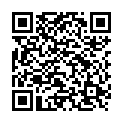|
|
|
| Module code: MST.MA2 |
|
|
4V+2U (6 hours per week) |
|
6 |
| Semester: 2 |
| Mandatory course: yes |
Language of instruction:
German |
Assessment:
Written exam
[updated 10.05.2021]
|
MST.MA2 (P231-0054) Mechatronics and Sensor Technology, Bachelor, ASPO 01.10.2012
, semester 2, mandatory course
MST.MA2 (P231-0054) Mechatronics and Sensor Technology, Bachelor, ASPO 01.10.2011
, semester 2, mandatory course
|
90 class hours (= 67.5 clock hours) over a 15-week period.
The total student study time is 180 hours (equivalent to 6 ECTS credits).
There are therefore 112.5 hours available for class preparation and follow-up work and exam preparation.
|
Recommended prerequisites (modules):
MST.MA1 Mathematics I
[updated 01.10.2012]
|
Recommended as prerequisite for:
MST.CVI Computer Vision
MST.ESA Computer-Aided Design of Sensors and Actuators
MST.NSW Numerical Software
MST.SYS
[updated 01.10.2012]
|
Module coordinator:
N.N. |
Lecturer: N.N.
[updated 01.10.2012]
|
Learning outcomes:
This course is designed to teach the mathematical fundamentals, specifically analysis, required for undergraduate and graduate subjects.
[updated 10.05.2021]
|
Module content:
1 - Real-valued functions in a variable
1.1
Definition, properties (symmetry, monotonicity, boundedness, zeros)
1.2
Inverse functions, shift and rotation
1.3
Representation in polar and spherical coordinate systems, parameter representations
2 Sequences of numbers
2.1
Definition, properties (monotonicity, boundedness, alternating)
2.2
Convergence and cluster points, limit theorems
3 Limits and continuity of functions
3.1
Limit theorems, continuity
3.2
Poles, asymptotes
4 - Special elementary functions and their properties
4.1
Integer functions and polynomials
4.2
Broken rational functions and partial fraction decomposition
4.3
Algebraic functions and root equations
4.4
Exponential and logarithm functions
4.5
Trigonometric functions
4.6
Hyperbolic and area functions
5 - Differential calculus
5.1
Derivative of a function, differential quotient, tangent and total differential
5.2
.Differentiation rules
5.3
.Applications of differential calculus
6 Integral calculus
6.1
Definite and indefinite integrals
6.2
Integration techniques
6.3
Numerical integration
6.4
Improper integrals
6.5
Applications of integral calculus
7 - Series
7.1
Basic definitions, properties
7.2
.Convergence criteria for series (root, quotient criterion, ...)
7.3
.Power series (radius of convergence and interval of convergence)
7.4
.Taylor series (Taylor series expansion of special functions and residual element estimation)
7.5
.Continuity, differentiability and integrability of function series
[updated 10.05.2021]
|
Teaching methods/Media:
Practical exercises for the lecture, as well as solving exercises, homework and case studies will be done with the e-learning system MathCoach (AMSEL lab: PC lab: "Angewandte Mathematik, Statistik und eLearning").
In addition, a performance-relevant midterm exam will be written as an online exam using the MathCoach elearning system.
[updated 10.05.2021]
|
Recommended or required reading:
Literature:
0. B.Grabowski: "Mathematik II für Ingenieure", ebook with MathCoach, 2011
1. L. Papula : "Mathematik für Ingenieure", Band 1-3 und Formelsammlungen, Vieweg, 2000
2. Engeln-Müllges, Schäfer, Trippler: "Kompaktkurs Ingenieurmathematik". Fachbuchverlag Leipzig im Carl Hanser Verlag: München/Wien, 1999.
3.
Materials
1. www.htw-saarland.de/fb/gis/people/bgrabowski/vorles/mathe.htm
(only available within the htw)
2. www.htw-saarland.de/fb/gis/mathematik/
[updated 10.05.2021]
|


